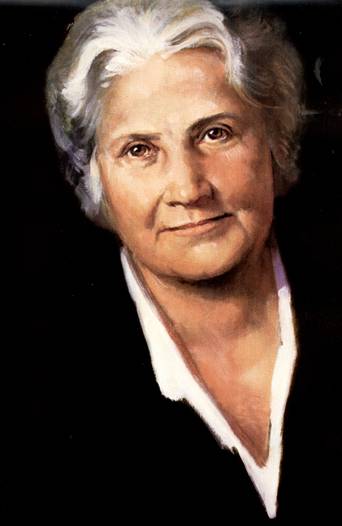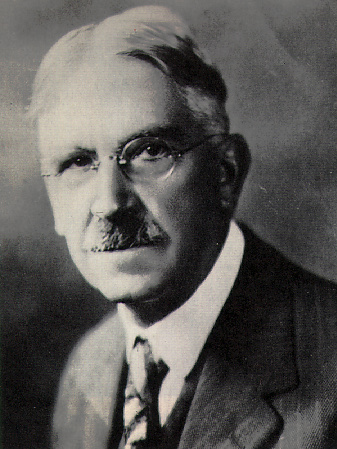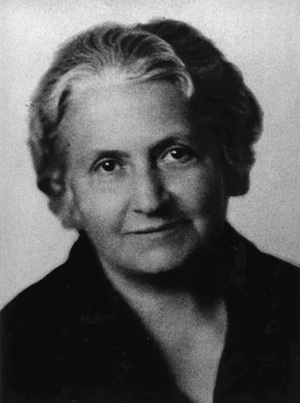Interview conducted at Rockford University by Stephen Hicks and sponsored by the Center for Ethics and Entrepreneurship.
Hicks: I’m Stephen Hicks. My guest this evening is Professor Jerry Kirkpatrick from California State Polytechnic University in Pomona. He is the author of a new book, Montessori, Dewey and Capitalism. Tonight he gave a lecture to the Philosophy of Education class here at Rockford University, sponsored by the Center for Ethics and Entrepreneurship on the theme of “Montessori, Dewey, and Capitalism.”
Now, Professor Kirkpatrick, both Montessori and Dewey are known properly as modern and very progressive educators — and as two giant names in philosophy of education and education practice in the twentieth century.
What distinguishes them from the long line of traditional educational thinkers and practice over the course of two millennia plus?
Kirkpatrick: Right. The focus is on the child — the whole child, not just communicating a lot of information. They focus on trying to develop the child’s independence, abilities of think for himself or herself and have a good self-directed kind of life.
Montessori uses the term “concentrated attention”, and it’s her primary aim in education to get the child to concentrate for long periods of time. This is something that increases as the years go by to adulthood, which, presumably, would be then a nice, productive career with strong concentration.
John Dewey talks about “undivided interest” in the sense that, first of all, we should have an interest in what we’re studying and be able to choose what we are learning as opposed to the traditional education that has been taught since at least Ancient Greece where, basically, information is drilled into you. Then you must recite it back, and if you make a mistake, you might actually get hit or spanked or whatever. It’s the modern, progressive view of being nice to children and understanding their emotions, their desires, and letting them pursue their own interests.
Hicks: Now, as you say, Montessori and Dewey are drawing on some historical figures in the traditional, not necessarily the dominant figures up until the modern time. Who do you single out as the major figures that both Montessori and Dewey are drawing upon?
Kirkpatrick: Well, there are quite a few since about a century before the Enlightenment, but it even goes back to the Roman educator Quintilian in the first century A.D. He was very concerned about his students and not having this harsh kind of discipline. He wrote a book that was lost in the Middle Ages and rediscovered in the Renaissance which then influenced a lot of other people. And we’ve got the Czech reformer Comenius. We have John Locke and Rousseau, who is called the father of modern education because he focused on the concept of interest, that the child should be able to pursue in his or her own interest and not just be forced into a situation by the traditional teacher. There was a Swiss practitioner by the name of Pestalozzi who had a number of schools. Johann Friedrich Herbart, a philosopher at the University of Königsberg and actually the successor to Kant coined the term pedagogy or science of learning or science of teaching. There was then also Friedrich Fröbel, the father of kindergarten. And kindergarten means “garden for children” as opposed to a very unfriendly kind of classroom type situation. His term kindergarten was supposed to apply all way through education, not just pre-first-grade that we think of today.

Hicks: Right, as you put it in class, a garden rather than a prison.
Kirkpatrick: Yes, right. There is a definite tradition, and I see Montessori and Dewey as the culmination of this whole trend.
Hicks: Let’s focus on a couple the more particular elements of parallel. For Montessori, the phrase is “concentrated attention.” For Dewey, it’s “undivided interest”. Both of them independently are focusing on this as a central part of education, and, in your judgment, it amounts to the same thing with different labels.
Kirkpatrick: Yes, very similar because Montessori wanted the child to learn how to concentrate for long periods of time. She developed these unique and very clever “didactic materials” as she calls them that the child works with. And it encourages the concentration, it relaxes them. Many problems just kind of fade away. Dewey was talking about the traditional classroom, where the child is bored and starts daydreaming. The interest, in other words, is divided, and that breeds dependence and becomes very discouraging to the child.
Hicks: And so, for both, the primary job of the teacher is to set the right conditions for the child to get into the state of undivided attention.
Kirkpatrick: Right. Montessori called it a “prepared environment”, and Dewey just says the teacher needs to develop certain experiences that will encourage this.
Hicks: And then the educational outcome, the primary one, is that the student cultivates independent judgment. So, in both cases, the teacher is the facilitator of the environment so the student is able to concentrate and then achieve the ability.
Kirkpatrick: Now, I actually think I am extending this a bit to talk about it as independent judgment. Montessori calls it independence, and she and Dewey don’t really define it as specifically as I do. I think most people think of independence as you become an adult, you can pay your bills, and you have good, sound judgment. But independent judgment is going beyond that to, like, the boy in the story of “The Emperor’s New Clothes”. When everyone else is sitting idly by and ignoring it and denying it, the boy pipes up and says, “The emperor has no clothes on.” He sees it, he judges it, and he also acts on it. I would say that another parallel was the ability of revolutionary Americans to go to dump tea into the Boston Harbor, having the guts to really do something that’s not necessarily popular.
Hicks: So independence has both a cognitive component and an existential action component, right?
Kirkpatrick: Yes.
Hicks: You were stressing similarities between Montessori and Dewey, but through most of the twentieth century the perception has been that they are philosophically different, that there have been turf warfare issues. In your judgment, do you think that the differences are overstated or they are real?

Kirkpatrick: Well, they definitely are real to some extent because throughout the twentieth century it was progressive educators — not just Dewey. And Dewey was kind of on the sidelines for most of his career as a professional philosopher. There were people who were speaking for him or in his name, and I don’t think they necessarily followed what he was saying precisely.
But it is still true that Dewey advocated a more social orientation in his schools. He saw education as a tool of social policy and with a very significant political element. Montessori did not. That’s true of most of the European progressives; they didn’t have the strong political element to them. They focused really down at the class level, helping the child become independent and catering to their interests and individual differences.
Hicks: One of the things you also mentioned in your talk and developed further in your book are the political and economic implications of these educational philosophies and your extensions of them.
In emphasizing this point of finding one’s own interest, being able to independently concentrate and work through various projects, and then developing the independence of spirit, of mind, and of action — your argument then is that both Montessori and Dewey, whether they were aware of it or not, really were preparing students for a modern, free, entrepreneurial approach to society.
Kirkpatrick: Specifically capitalism, yes. I do a real twist on these things because both Montessori and Dewey were socialists. But I took a look at their ideas and the whole trend of the progressive movement, and I saw what seemed like a contradiction to let the child blossom on its own, let it be free to choose and move around the room. Yet the whole thing is going to be imposed by the State, which is a tool of coercion. So, especially with compulsory education, you are forcing children to be free, which is a contradiction. And I said, “Well, no, they are both talking about independence and want children to grow up to be strong, courageous adults. That sounds just fine for capitalism.” And so I actually advocate a free market in education, removing government completely from the whole education process and having entrepreneurial capitalists providing the schools.
Hicks: The argument actually goes in two directions. One is, if you take the underlying educational philosophy that both Montessori and Dewey were advocating, that prepares students best not for a more bureaucratic top-down socialist society but for an entrepreneurial, market society.
Kirkpatrick: That’s what I saw when I was reading them.
Hicks: Then your argument that is if we want to actually institutionalize the kind of educational approach that Montessori and Dewey are advocating, that is going to be best realized not by state-run democratic institutions but will be best provided by entrepreneurial market approaches.
Kirkpatrick: Right. And both Dewey and Montessori are talking about not interrupting the child, you know, undivided interest, don’t divide the interest. Montessori says it’s very important not to interrupt the child, not to deflect the attention. Well, I see the connection there also at the political level that what government intrusion in the economy does is precisely that. It deflects attention of the entrepreneur and tries to move him in a direction that is away from what the real business is and that’s satisfying customers.
Hicks: Or developing the product to satisfy and deflecting it toward rule compliance and bureaucracy.
The book is Montessori, Dewey and Capitalism by Jerry Kirkpatrick. Thanks for being with us today.
[The video of the original interview with Dr. Kirkpatrick follows.]
Related: My Education page, including my lectures and other links on the Montessori Method.

